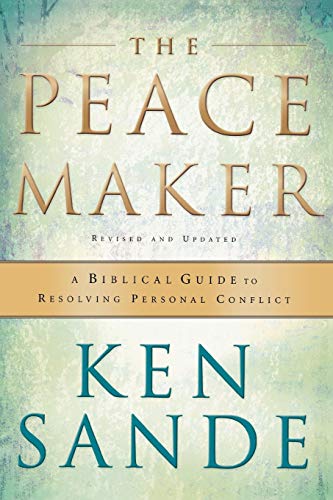Quotes about Fellowship-People
Association promotes assimilation. A Christian who lives in isolation from other believers will fail to receive the blessings as well as the maturity resulting from godly interaction.
Assurance of Faith: Calvin, English Puritanism, and the Dutch Second Reformation, Peter Lang, 1991, p. 407-408.
There are many elements that go into the total concept of fellowship, as it is described in the New Testament, but the sharing together in suffering is one of the most profitable. It probably unites our hearts together in Christ more than any other aspect of fellowship.
Trusting God, 1988, p. 189. Used by permission of NavPress – www.navpress.com. All rights reserved. Get this book!
Don’t just share your struggles, and above all, don’t just commiserate with one another. Remember, we are to be ministers of grace to each other. We are to seek to be avenues of the Holy Spirit to help the other person appropriate the grace of God. Praying with and for one another, sharing applicable portions of Scripture, and helping each other submit to God’s providential dealings with us, must characterize our times together.
Transforming Grace, NavPress, 1991, p. 193. Used by permission of NavPress – www.navpress.com. All rights reserved. Get this book!
Ah, were their souls fully assured that God had loved them freely, and received them graciously, and justified them perfectly, and pardoned them absolutely, and would glorify them everlastingly, they could not but love where God loves, and own where God owns, and embrace where God embraces, and be one with every one that is one with Jesus.
A Puritan Golden Treasury, compiled by I.D.E. Thomas, by permission of Banner of Truth, Carlisle, PA. 2000, p. 303.
Let those be thy choicest companions who have made Christ their chief companion.
The heart of true [Christian] fellowship is self-sacrificing conformity to a shared vision, [namely] to the gospel.
We are all called to initiate involvement in each other’s lives… We covenant together to work and pray for unity, to walk together in love, to exercise care and watchfulness over each other, to faithfully admonish and entreat one another as occasion may require, to assemble together, to pray for each other, to rejoice and to bear with each other, and to pray for God’s help in all this.
Nine Marks of a Healthy Church, Crossway, 2000, p. 221. Get this book!
Though true Christianity uniquely involves a personal relationship with Jesus Christ, it is also a corporate experience…Christians cannot grow spiritually as they ought to in isolation from one another.
Love will flow from one to another, when each is prepared to be known as the repentant sinner he is at the Cross of Jesus. When the barriers are down and the masks are off, God has a chance of making us really one. But there is also the added joy of knowing that in such a fellowship we are “safe.” No fear now that others may be thinking thoughts about us or having reactions toward us which they are hiding from us. In a fellowship which is committed to walk in the light beneath the Cross, we know that if there is any thought about us it will quickly be brought into the light, either in brokenness and confession (where there has been wrong and unlove), or else as a loving challenge, as something that we ought to know about ourselves.
The Calvary Road, Christian Literature Crusade, 1950, p. 43. P.O. Box 1449, Fort Washington, PA 19034-8449. Used by Permission.
Since God is within Himself a fellowship, it means that His moral creatures who are made in His image find fullness of life only within a fellowship. This is reflected in marriage, in the home, in society and above all in the church whose koinonia is built upon the fellowship of the three Persons. Christian fellowship is, therefore, the divinest thing on earth, the earthly counterpart of the divine life, as Christ indeed prayed for his followers: “That they may all be one; even as Thou, Father, art in Me, and I in Thee, that they also may be in Us” (Jn. 17:21).
The Trinity of God, http://bible.org/article/trinity-triunity-god#P153_19537, Copyright ©1996-2005, All rights reserved.
We don’t come to church, to be a church. We come to Christ, and then we are built up as a church. If we come to church just to be with one another, one another is all we’ll get. And it isn’t enough. Inevitably, our hearts will grow empty, and then angry. If we put community first, we will destroy community. But if we come to Christ first and submit ourselves to Him and draw life from Him, community gets traction.
A Christian who willingly forsakes fellowship with other believers will inevitably be without genuine, Spirit-given joy. It is impossible to live faithfully or happily apart from fellow believers in Christ
If we go to church just to be with one another, one another is all we will get. And it isn’t enough. Eventually, our deepest unmet needs will explode in anger at one another. Putting community first destroys community. We must put Christ Himself first and keep Him first and treat Him as first and come to Him first and again and again.
Nowhere in the New Testament do any of the Greek words translated “fellowship” imply fun times. Rather, they talk of, for example, “The fellowship of the ministering to the saints” (2 Cor. 8:4) as sacrificial service and financial aid (see for example, 1 Tim. 6:18). Elsewhere, Paul was thankful for the Philippian believers’ “fellowship in the gospel” (Phil. 1:5), for he knew that “inasmuch as both in my bonds, and in the defense and confirmation of the gospel, ye all are partakers (same word as fellowship) of my grace” (Phil. 1:7). This sort of fellowship may even bring persecution. We are to emulate Christ’s humility and self-sacrificial love (Phil. 2:5-8) through the “fellowship of the Spirit” (Phil. 2:1). In some way known only partially to us, we have the privilege of knowing “the fellowship of His sufferings, being made conformable unto His death” (Phil. 3:10), and even the communion (i.e. fellowship) of the blood…and body of Christ” (1 Cor. 10:16) (J.D. Morris).
It goes against the grain to give an image of oneself that is anything less than perfect, and many Christians imagine that they will be rejected by others if they admit to any faults. But nothing could be more destructive to Christian koinonia (fellowship) than the common practice today of pretending not to have any problems (Ray Stedman).
Body Life, www.RayStedman.org, Used by permission.
Imagine a symphony where every instrument kept hitting exactly the same note in exactly the same way. You could describe it in one word – BORING! No, a beautiful symphony is not music in unison, but music in unity – notes that blend together to make something they couldn’t make separately. This is what God wants the body of Christ to be like, and it all begins with relationship.
Our union with Jesus is the basis for bond with our fellow Christians. Because that bond is so vital and real, we can live with each other in an intimacy impossible in every other setting.
Fellowship is from the Greek word, “koinonia” which literally means “to have something in common.” What comes to mind when you think of fellowship? Is it conversations with other believers, Christian parties, a “fellowship hall” – the name of the room behind the sanctuary? Fellowship in the biblical usage is the verbal exchange of encouragement between two or more believers. It’s taking about trials and how we can be encouraged. It’s talking about blessings and their source in God. It’s talking about special insights from the Word. It’s encouraging a brother or sister in Christ through divine means. Discussing the weather, sports or bodily pains is not biblical fellowship.
Sermon, The Quintessential to Gospel Effectiveness, Philippians 2:1-4, October 30, 2022.
Satan always hates Christian fellowship; it is his policy to keep Christians apart. Anything which can divide saints from one another he delights in. He attaches far more importance to godly intercourse than we do. Since union is strength, he does his best to promote separation.
Nobody can do as much damage to the church of God as the man who is within its walls, but not within its life.
Some Christians try to go to heaven alone, in solitude. But believers are not compared to bears or lions or other animals that wander alone. Those who belong to Christ are sheep in this respect, that they love to get together. Sheep go in flocks, and so do God’s people.
Satan watcheth for those vessels that sail without a convoy.
A Puritan Golden Treasury, compiled by I.D.E. Thomas, by permission of Banner of Truth, Carlisle, PA. 2000, p. 77.
Autonomous Christianity never works, because our spiritual life was designed by God to be a community project.
Again and Again, by Paul David Tripp taken from Dangerous Calling by Paul David Tripp copyright 2012, Crossway Books, a division of Good News Publishers, Wheaton Illinois 60187, www.crosswaybooks.org, p. 39.
Those who live in the Lord never see each other the last time.
Associate with sanctified persons. They may by their counsel, prayers, and holy example, be a means to make you holy.
The Bible knows nothing of solitary religion.
There is a Christian failure to distinguish between socializing and fellowship. Although socializing is often both a part of and the context of fellowship, it is possible to socialize without having fellowship. Socializing involves the sharing of human and earthly life. Christian fellowship, New Testament koinonia, involves the sharing of spiritual life. Don’t misunderstand- socializing is a valuable asset to the church and necessary for a balanced life. But we have gone beyond giving socializing the place it deserves. We have become willing to accept it as a substitute for fellowship, almost cheating ourselves of the Christian birthright of true fellowship altogether.
Spiritual Disciplines for the Christian Life, 1991, p. 240, Used by permission of NavPress – www.navpress.com. All rights reserved. For more information please see the website www.BibicalSpirituality.org. Get this book!
The word “fellowship” in the New Testament (as in Acts 2:42) is a translation of the Greek word “koinonia.” At its root “koinonia” describes two or more people in close association and often speaks of these people as sharing in something, such as a marriage or business. Christian “koinonia” exists between everyone who knows God through Jesus Christ (see 1 John 1:3). Everyone united with Christ by faith is also united with everyone else united with Christ. The same Holy Spirit indwells all believers and gives each a common share in the body of Christ, the church. As the apostle Paul put it, “For by one Spirit we were all baptized into one body…and all have been made to drink into one Spirit” (1 Corinthians 12:13).
One simple way to cultivate koinonia (fellowship) is to ask questions designed to turn a conversation in a more spiritual direction. Here’s a list to work from:
How is your (teaching, hospitality, outreach, deacon, or whatever) ministry going? What do you enjoy most about it?
Where have you seen the Lord at work lately?
What’s the Lord been teaching you recently?
Have you had any evangelistic opportunities lately?
Have you had any obvious answers to prayer recently?
Where in the Bible have you been reading lately? What impact has it had on you?
How can I pray for you?
What’s the growth point in your life right now?
What are you passionate about right now?
When Christians meet together, do they not talk too much about religion, preachers, and sermons? I cannot but think, that if they communed less about religion, and more of Jesus, it would give a higher tone of spirituality to their conversation, and prove more refreshing to the soul. He would then oftener draw near, and make Himself one in their midst, and talk with them by the way.

























